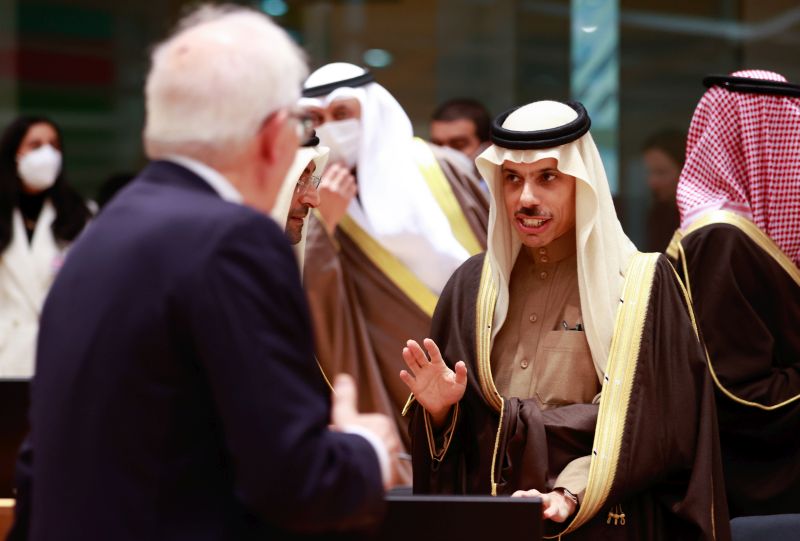A group of young government officials from Saudi Arabia and the Gulf States recently reminded this author that polls in their region consistently show that among their generation, China is often the most admired country, with Russia also scoring well.
On the other hand, when asked where they would prefer to pursue their studies outside their home countries, most said the US, the UK, or the EU. Few, if any, were enamoured by the prospect of going East.
So, while its soft power remains an important attraction to Gulf Arabs, they are growing increasingly disillusioned with the West’s commitment to their security and well-being. In recent years, the US, traditionally their key security provider and ally, has been gradually disengaging from the region, in the wake of the resurgence of the domestic American oil industry, which has freed the US from dependence on Gulf oil. Frustration with continuing human rights violations, above all the killing of Jamal Khashoggi, and a general fatigue in Washington with ‘forever wars’ haven’t helped either.
At the same time, the Gulf States’ political and economic relations with China and Russia have been growing apace, to the point where China has displaced the EU as the main trading partner for many of them.
While this should not be overdone (the US retains a major military presence in the Gulf, not least because of the need to contain Iran, and together with EU exporters is by far the main source of weaponry for these countries), it does to some extent explain the reluctance of the Saudis and most of the Gulf States to unequivocally condemn Vladimir Putin’s invasion of Ukraine.
With that in mind, the recent deal between the Saudis and Russia within the ‘OPEC+’ format to reduce oil exports by two million barrels a day should come as no great surprise. The two countries have a common interest in keeping oil prices buoyant, especially the Russians with their high cost of oil production and the need to keep profits healthy as they struggle to finance their war effort and withstand the effects of Western sanctions.
The Saudis would certainly not have dared to do this five or 10 years ago, for fear of trouble in Washington. Nonetheless, the Biden Administration was certainly angered by this deal and there are rumblings in Congress about blocking Saudi arms supplies, though the powerful US oil and gas lobbies would not have been too concerned. All in all, it seems unlikely that there will be significant blowback from the US..
Meanwhile, Europeans have by and large left it to Washington to publicly condemn the deal, and this is understandable – the EU is far more dependent on Gulf oil and gas than the US, the more so following its drive to diversify supplies away from Russia. It is therefore more reluctant to be critical of the Gulf States, especially given the current energy crisis at home.
Europe’s leverage in the region, whether through the EU or its Member States, is strictly limited, and its weak hand has been further enfeebled by Brexit, which has taken the Member State with the most influence in the region out of the European equation completely. And vice-versa for London, which has also seen its influence wane. A classic Brexit lose-lose.
That said, and belatedly recognising the region’s growing importance, the EU has been making efforts to up its game there and produced its first real strategy for relations with the region earlier this year. It has also been opening EU Delegations around the Gulf (20 years ago there were none), the latest being Qatar this year.
As for the strategy itself, it contains several good proposals, such as cooperation on education and the green transition, visa-free travel, new security dialogues and projects, and a revival of talks on the moribund EU-Gulf FTA, but beyond this exercise of soft power, it lacks a little beef.
There are major points of contention, notably on democracy and human rights, where given the fundamental differences probably the best that can be hoped for is an agreement to disagree. And it is not yet clear whether EU Member States, who are used to doing things bilaterally in the region, will take ownership of the strategy and cooperate fully in areas such as security, where their input will be essential.
The common interest is certainly there, from securing the strategic trade routes in this volatile region, through cooperation on energy, trade and two-way investment, to the Gulf’s need for technology transfer as it tries to diversify its economy in the face of the longer-term global transition away from fossil fuels.
All in all, the strategy does provide a good starting point for more meaningful engagement, something that is surely needed by both sides. But the EU can and definitely should do more.
About the author:


